But if you’re worried, don’t hesitate to call your doctor or midwife
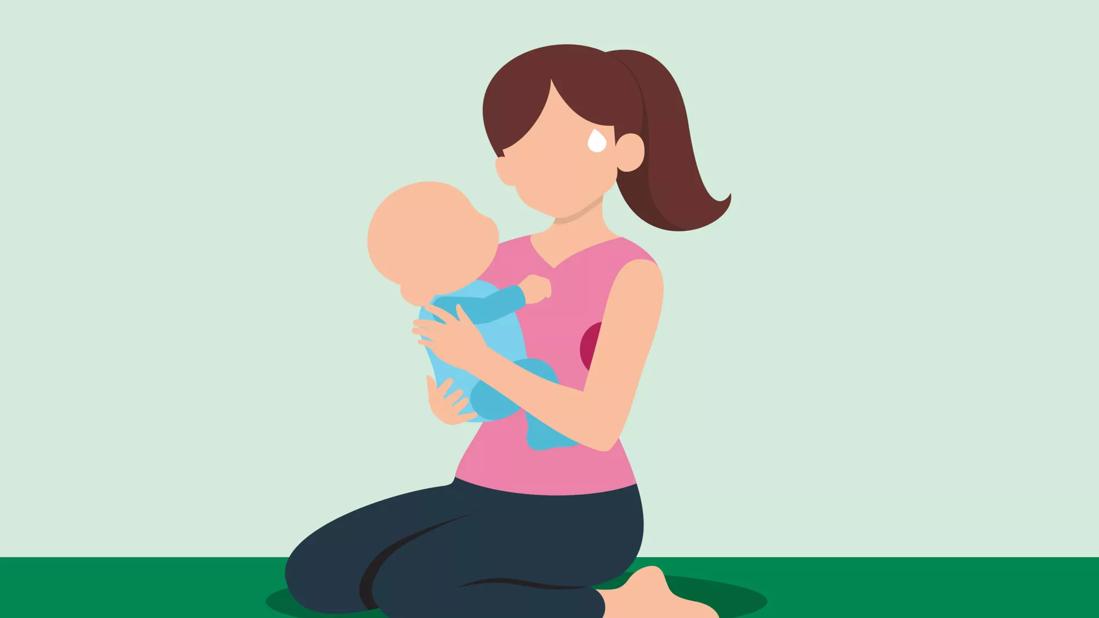
After all the blood, sweat and tears, you finally have a baby!
Advertisement
Cleveland Clinic is a non-profit academic medical center. Advertising on our site helps support our mission. We do not endorse non-Cleveland Clinic products or services. Policy
And the sweat. You’ve got that, too. In abundance. In fact, you’re smelling a bit … riper than usual.
It happens more often than you might think.
It’s not the most appetizing of topics, true, but postpartum sweating and body odor are phenomena we need to discuss more often.
So, pull up a chair, my friend — we’re going to have a frank discussion about your changing postpartum body.
Certified nurse midwife Claire Hamp, CNM, puts it best: “In pregnancy and postpartum, everything just seems to be more enhanced. Like, everything. There’s more of your body. You feel sweatier, you feel stinkier, you feel hungrier or more nauseated. And you're more exhausted.”
It’s a lot.
In addition to being sweatier and smellier than before, you may notice the following after giving birth:
Hamp says it's common to feel sweaty and stinky even before giving birth. But it tends to be more intense afterward, for a whole bunch of biological (and social) reasons.
Advertisement
Anybody who tells you they know exactly why you’re sweating more and smell stronger is probably oversimplifying a bit. There’s a lot going on postpartum — both in your body and in your life — that can add up to a “not-so-fresh feeling.” Here are a few of them:
When it comes to flavoring your funk, hormones are culprit No. 1 — and they always have been.
“With hormonal shifts like the ones we go through during puberty, people get stinky,” Hamp reminds us.
“There are big hormonal shifts in pregnancy and postpartum. That adjustment changes how much we sweat and how (and how strongly) we smell.”
You carry a lot of extra fluid around in your body when you’re pregnant. Once you give birth, your estrogen and progesterone levels drop precipitously. We don’t know exactly why, but this hormonal dip signals to your brain that you’re too hot. And so, you sweat.
And when you sweat, you might smell.
If you choose to breastfeed, there’s a possibility you’ll sweat more (and longer) than those who formula feed. That’s because prolactin — the hormone that produces milk — suppresses estrogen levels.
Regardless of how you choose to nourish your child, your postpartum body has some stuff it needs to figure out.
“It’s an uncomfortable time where your body’s trying to figure out how much milk it needs to make for your baby,” Hamp notes. “So, it’s very common to have a lot more milk and to accidentally leak all over the place.” The result: Dried milk on your clothing or on your skin.
Pregnancy is a bloody business. “Increased vaginal discharge is a normal part of pregnancy,” Hamp explains, adding, “There’s much more blood flow to the uterus to help with fetal growth and development. And with that increased discharge comes more odor.”
The discharge continues after giving birth. In the first six weeks after delivery, you’ll go through the three stages of lochia. Lochia is the mixture of blood, mucus, tissue and everything else you’ve had in your uterus for the past nine months. It smells similar to your period, but might have some sour, stale, musty or metallic notes.
“Your lochia could be pretty heavy for the first few days and then start to taper down,” Hamp states. It usually lasts about six weeks.
Whether you deliver vaginally or give birth via C-section, you’re recovering from quite the physical ordeal. That can have an impact on your approach to hygiene.
“Oftentimes, people are very uncomfortable because of lacerations or swelling,” Hamp notes. “You may have tears and abrasions. And it might be painful to go to the bathroom.”
Advertisement
When you’re super focused on basic things like surviving a postpartum poop, it can be easy to lose track of standard hygiene routines.
It’s also common to be a little too ginger will postpartum perineal care. “People may not be using a lot of soap around their vulva, because they’re just being very careful,” Hamp says. “But it’s OK — and oftentimes, necessary — to make sure you’re soaping up your bottom.”
Generally speaking, the weeks and months after having a baby aren’t when you’re at your physical, mental or emotional peak. It can be quite the opposite, in fact.
You’re probably not sleeping very well. Or showering as often as you usually would. Or doing the little things that make you feel good about yourself, whether that’s styling your hair, shaving it, doing a multistep skincare routine or, you know … not wearing clothing with baby vomit on it.
It’s not unusual for hygiene to suffer a bit as you adjust to the new rhythm of your life. But it’s also not unusual to feel like kind of a mess no matter what you do. If that’s where your head is, a pit stain or a particularly righteous whiff of body odor can feel like a much bigger deal than it really is.
Giving yourself a little grace — and expecting others to do the same — may make a bigger difference than anything else.
Advertisement
The first order of business is to make sure that you’re able to perform your basic bodily functions after giving birth. We want to be sure your bladder and bowels are in good working order and that you aren’t bleeding too much. Once you’re sure you’re OK on those fronts, you can start worrying about sweat and odor control.
Here are a few rules of thumb for dealing with postpartum sweating and odor:
Advertisement
Postpartum night sweats are very common and should only be a cause for concern if they’re showing up alongside other symptoms, like chills.
That doesn’t make them any more fun. A drenching night sweat can rob you of sleep, leaving you even more tired and overwhelmed than you already were.
Night sweats are a common postpartum experience because your estrogen and progesterone levels are fluctuating — just like they do during menopause. We don’t know exactly why our brains interpret a dip in our reproductive hormones as a sign that we’re too hot, but they do.
Postpartum night sweats are usually at their worst in the first few weeks after giving birth. The hormonal changes that facilitate breastfeeding may extend them slightly, but you should see your healthcare provider if you’re still experiencing severe night sweats over a month postpartum.
Postpartum sweating and stink is rarely a sign of a medical problem, but there are exceptions to every rule. “If something smells foul or something feels like it’s infected, that’s a concern,” Hamp states.
Get in touch with your Ob/Gyn or midwife if, in addition to a foul smell, you’re:
Even if you don’t have those symptoms, you should always feel free to call your healthcare provider with your postpartum questions.
“Call us like you did during your pregnancy,” Hamp advises. “Just call. There are no stupid questions. I would rather address your concerns than have you losing your precious sleep in the middle of the night worrying over something. We can always do tests for infection if you’re really concerned, just so you can have that peace of mind.”
There are so many things new parents have to worry about. The good news: Being funky forever isn’t on the list. This stage will pass, usually within about one to two months, give or take a few weeks.
“It’s weird and takes time,” Hamp reassures, “But your body will slowly return to what it was previously.”
Until then, try to be kind to yourself. And remember: It’s always been this way. In fact, there’s something weirdly beautiful about this malodorous moment.
“I think we all can remember the smell of whatever person we found comforting as babies,” Hamp says.
Keep in mind that babies aren’t able to see far into the distance when they’re born. “A baby relies on their other senses to know that they’re safe and with their parents,” she adds.
You may think you smell gnarly. You may even be right. But as far as your baby is concerned, you smell like home. And that’s kind of awesome.
Learn more about our editorial process.
Advertisement

Yes, new fathers can experience mood changes after bringing baby home
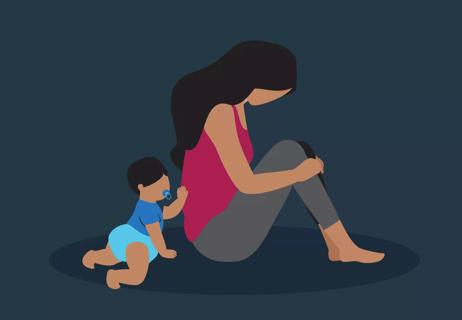
Heavy bleeding, pain and persistent sadness could be something more serious

Having sex after giving birth isn’t only about being medically ready
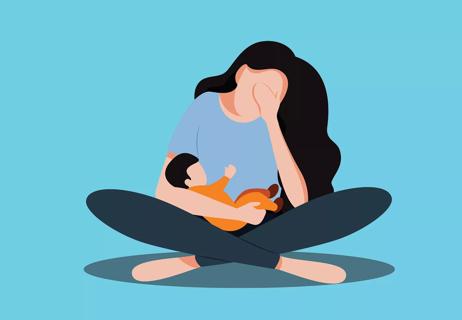
It’s normal to experience some changes
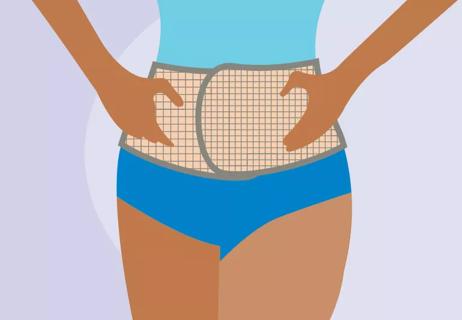
Belly wraps provide physical support after you give birth

Sad feelings and teariness that persist are a sign
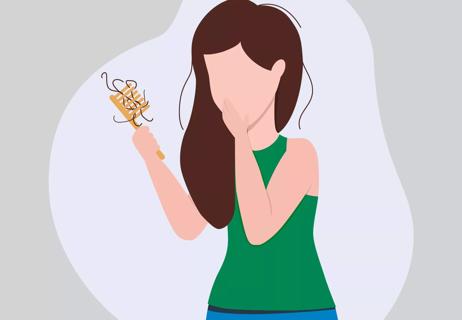
Patience is the best solution
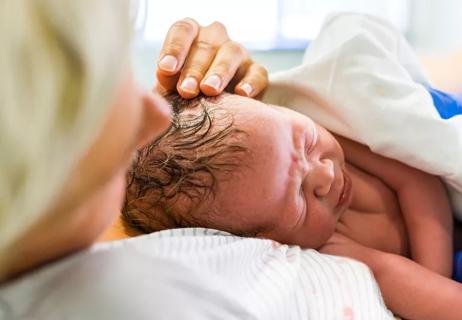
Don't sweat it — it's fairly common

Wearing a scarf, adjusting your outdoor activities and following your asthma treatment plan can help limit breathing problems

Your diet in the weeks, days and hours ahead of your race can power you to the finish line

When someone guilt trips you, they’re using emotionally manipulative behavior to try to get you to act a certain way